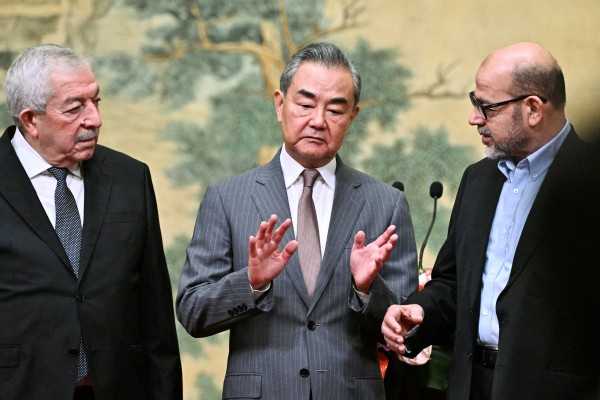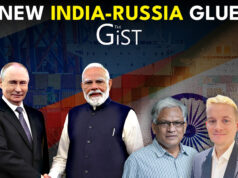Note China’s diplomatic balancing act over the last week: hosting the Palestine Liberation Organisation (PLO), Hamas and 12 other factions in a dialogue aimed at ending their differences and forging unity.
While the rather grandly titled Beijing Declaration (which Israel rejected) called for a government uniting all the Palestinian factions, reconstructing Gaza and national elections, other details were missing including security control over Gaza.
Fatah wants one unified security force, but Hamas has refused to disband its Qassam brigades. Nevertheless, the Beijing Declaration was signed by all the 14 factions.
Senior Hamas official Mousa Abu Marzouk said “We are signing an agreement for national unity, to say that the way to continue this path is our national unity and that’s why we are adhering to our national unity. We won’t let anything affect this.”
History Of Division
PLO, the umbrella organisation representing the Palestinians with secular Fatah as its largest component, and Islamic Hamas, have been foes since the 1980s. In 2005 Hamas won the legislative elections in Gaza and sealed it with an armed take over the next year, killing some Fatah loyalists and driving the rest out.
Fatah has ruled parts of the Israeli-occupied West Bank and is widely regarded as a corrupt subcontractor of the Jewish state.
Hamas and Fatah signed reconciliation agreements in 2011 in Egypt, and again in Algiers in 2022, but the provisions of the agreement were never implemented.
“Fatah and Hamas are too hostile to each other to be able to work together,” says Dr Khinvraj Jangid, director of the school of international affairs at Jindal Global University. “It’s more of pretense. They have been brought together earlier for such meetings and photo ops by Russia, Iran and Qatar.”
Jangid, who recently returned to India after a stint at a university in Israel, also believes that “China’s managed another good event for itself, which pads up its Middle East diplomacy.”
China A Major Player?
But Mahesh Sachdev, former diplomat and Arabist who served in the Gulf region, argues that “China’s not a major player in this part of the world, although it brokered an agreement last year between Saudi Arabia and Iran that saw them restore diplomatic relations.”
With the US now driving negotiations on a ceasefire in Gaza between Israel and Hamas, and reports about an “interim governance” plan in the works, Sachdev doubts that China can achieve much.
“There is no more talk in Riyadh of balancing relations with the US or seeking new security partners or curbing the use of the dollar in trade,” says Sachdev.
For that matter, the Western security profile in the region appears all set to rise given that NATO has confirmed it is setting up a liaison office in Amman, Jordan. A NATO statement issued at the end of a summit in Washington earlier this month confirmed this, noting “a natural progression of the long-standing relationship.”
It also points to heightened intelligence collaboration between many actors in the region that don’t usually work together that closely.
Commercial Considerations
China, as a power in its own right, is not blind to the strategic goings on. There are commercial considerations also.
“There is a lot of money to be made when peace prevails in Gaza and reconstruction gets underway. That may cost upwards of $15-billion and Beijing hopes Chinese companies can cash in,” says Sachdev.
It is estimated that half of China’s oil imports come from the Gulf, and the region is an important player in the BRI. China also does nearly $25 billion in trade with Israel (Israel-US trade $34.5 billion) and has invested in the tech sector, also Haifa port. There is talk of a free trade agreement (note: it has virtually no trade with the Palestinians).
What’s clear is China’s multiple and growing economic stakes in the region, which in turn is helping shape a strategic vision. Count on Beijing to find ways to reconcile conflicting sometimes competing interests to find a diplomatic equilibrium.
Thirty eight years in journalism, widely travelled, history buff with a preference for Old Monk Rum. Current interest/focus spans China, Technology and Trade. Recent reads: Steven Colls Directorate S and Alexander Frater's Chasing the Monsoon. Netflix/Prime video junkie. Loves animal videos on Facebook. Reluctant tweeter.





